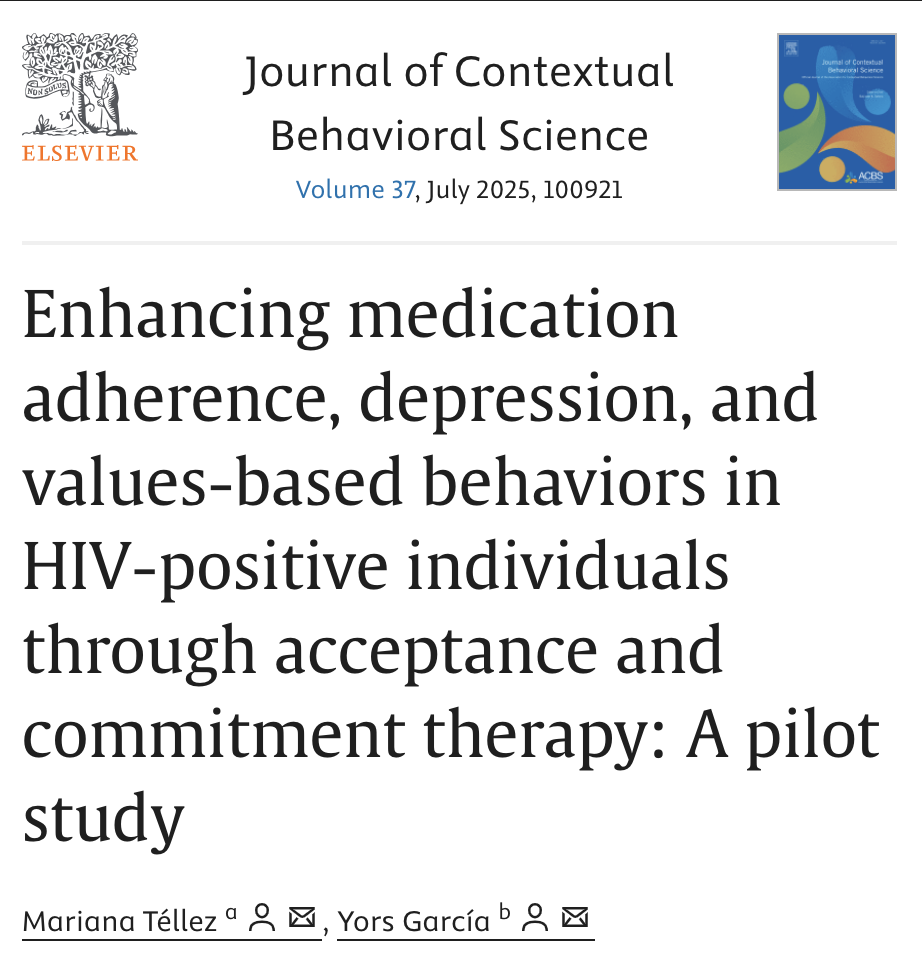Journal of Contextual Behavioral Science (JCBS)
Volume 37, July 2025
Authors
Mariana Téllez, Yors García
Key Findings
- ACT matrix intervention increased values-driven behaviors and ART adherence in PLWHA.
- Three participants achieved significant reductions in HIV viral load post-intervention.
- Depression scores improved for participants, with changes sustained during follow-up.
- The ACT Matrix was implemented with cultural responsiveness, supporting its feasibility in middle-income countries.
- High intervention acceptability highlights its potential for scalable HIV care improvements.
Abstract
This pilot study evaluated the impact of the Acceptance and Commitment Therapy (ACT) matrix on values-driven behaviors, medication adherence, viral load, and depression among individuals living with HIV in a middle-income country. A randomized, non-concurrent multiple baseline design across four participants was employed. Outcomes were assessed at baseline, post-intervention, and follow-up, with daily tracking of values-driven behaviors and medication adherence throughout. Participants underwent a 7-session ACT matrix training. Results revealed increases in values-driven behaviors and improvements in medication adherence across all participants. Viral loads decreased for three participants, with two achieving undetectable levels. Depression scores improved for three participants, with changes sustained through follow-up. Participants described the intervention as acceptable and relevant to addressing adherence barriers and mental health concerns. Findings underscore the potential for ACT to enhance antiretroviral adherence and psychological outcomes in middle-income countries, offering a scalable, culturally adaptable intervention for improving HIV care.
